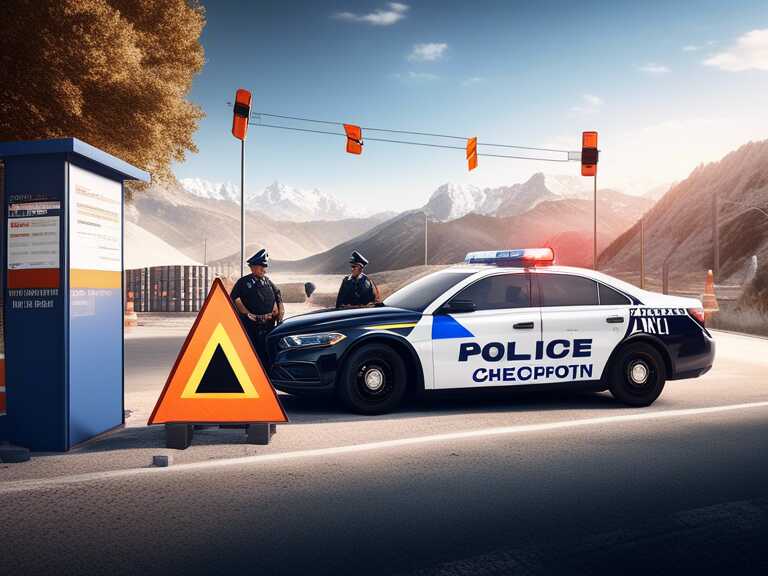
Are Police Checkpoints Legal? Understanding the Guidelines and Your Rights as a Driver
Police in South Carolina can legally conduct safety checkpoints to enforce traffic laws and detect impaired drivers, given that they follow strict guidelines and announce them in advance.

Timing is crucial when you’re rushing to catch a big game or an important appointment. However, even if you’re strictly following the speed limit, maintaining proper lane discipline, and are completely sober, you could still find yourself being stopped at a safety checkpoint along with numerous other drivers. The question that arises in such situations is whether these checkpoints are legally permissible.
Legal Provisions for Safety Checkpoints
Law enforcement agencies in South Carolina have the authority to establish checkpoints for various purposes, including enforcing traffic regulations, identifying impaired drivers, and verifying the validity of drivers' licenses, vehicle registrations, and proof of insurance. The legality of these checkpoints was affirmed by the U.S. Supreme Court in 1990, which ruled that sobriety checkpoints do not infringe upon the Fourth Amendment of the Constitution, which protects against unreasonable searches and seizures. However, these agencies must adhere to a set of specific guidelines to ensure the legality and fairness of the checkpoints.
Transparency and Safety Measures
One of the key requirements for law enforcement agencies is to publicly announce the date and location of the checkpoint in advance. This is commonly done through various communication channels, including social media platforms. Additionally, the establishment of checkpoints must be accompanied by proper safety measures, such as adequate lighting, warning signs, and signals to ensure the safety of all individuals involved. It is also essential that the nature of the checkpoint, whether it is for license verification or DUI checks, is clearly indicated. Moreover, the scope of the checkpoint should not extend beyond its intended purpose, and officers are not permitted to pursue lines of questioning that are unrelated to the checkpoint's objective.
Supervisory Approval and Location
Prior approval from a law enforcement supervisor is mandatory before the establishment and operation of any checkpoint. Furthermore, the chosen location for the checkpoint must be justified based on relevant data, such as the prevalence of accidents or DUI cases in that specific area. This requirement is crucial in ensuring that the checkpoints are set up where they are most needed, maximizing their effectiveness in promoting traffic safety and law enforcement.
Study Findings and Operational Parameters
A study conducted in 2023 highlighted that while sobriety checkpoints may have unintended positive effects on reducing violent crime, the specific deterrent effects are limited due to the generally low arrest rates at these checkpoints. Moreover, to maintain the integrity of the checkpoint process, officers are not permitted to stop vehicles at random. Instead, they should establish a pattern for stopping vehicles, such as every second or third car, and should not attempt to stop every vehicle that passes through the checkpoint.
Legal Considerations and Avoidance
Drivers who encounter a checkpoint ahead of them may wonder if they can legally maneuver to avoid it. According to Lexington attorney James R. Snell Jr., making a legal driving maneuver to bypass a checkpoint is within the bounds of the law. However, if a driver violates a traffic law in an attempt to avoid a checkpoint, law enforcement officers are authorized to initiate a stop.
Share news















